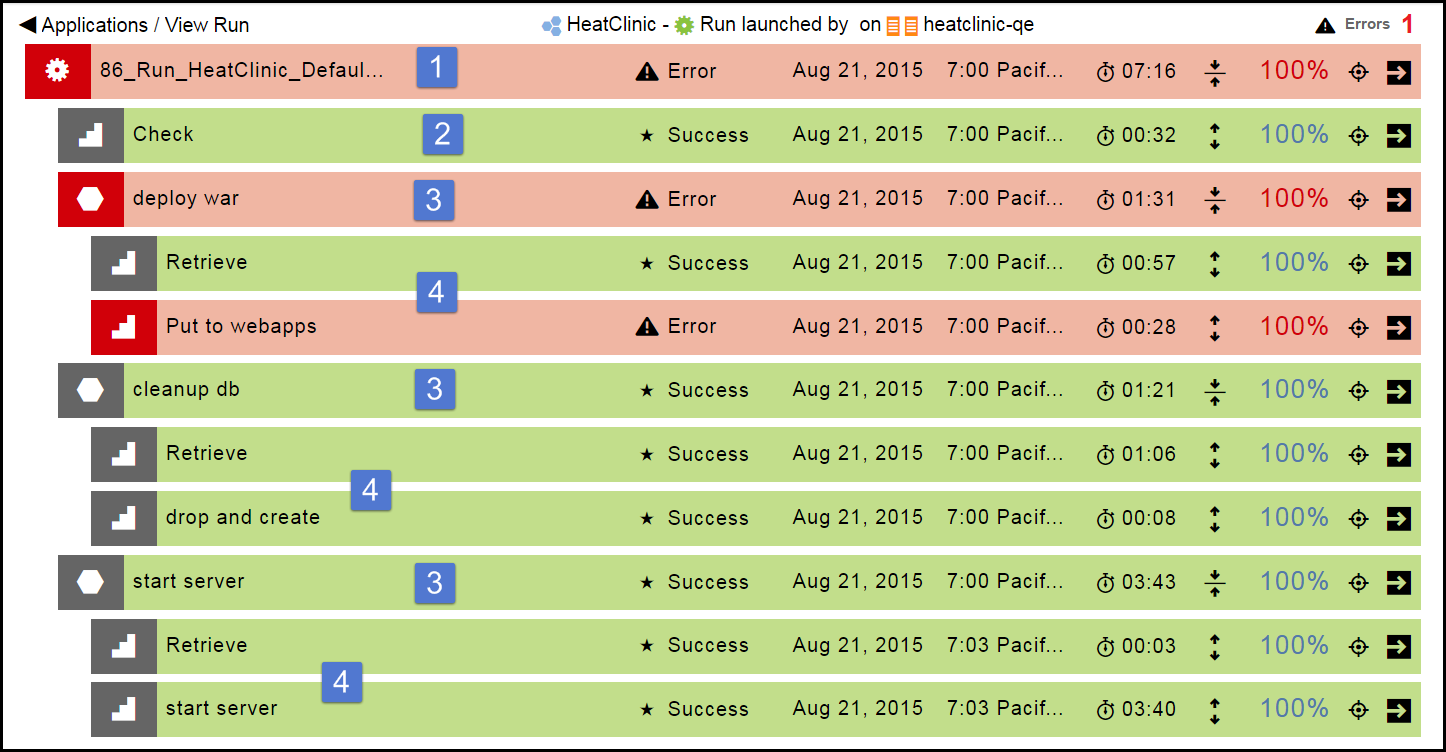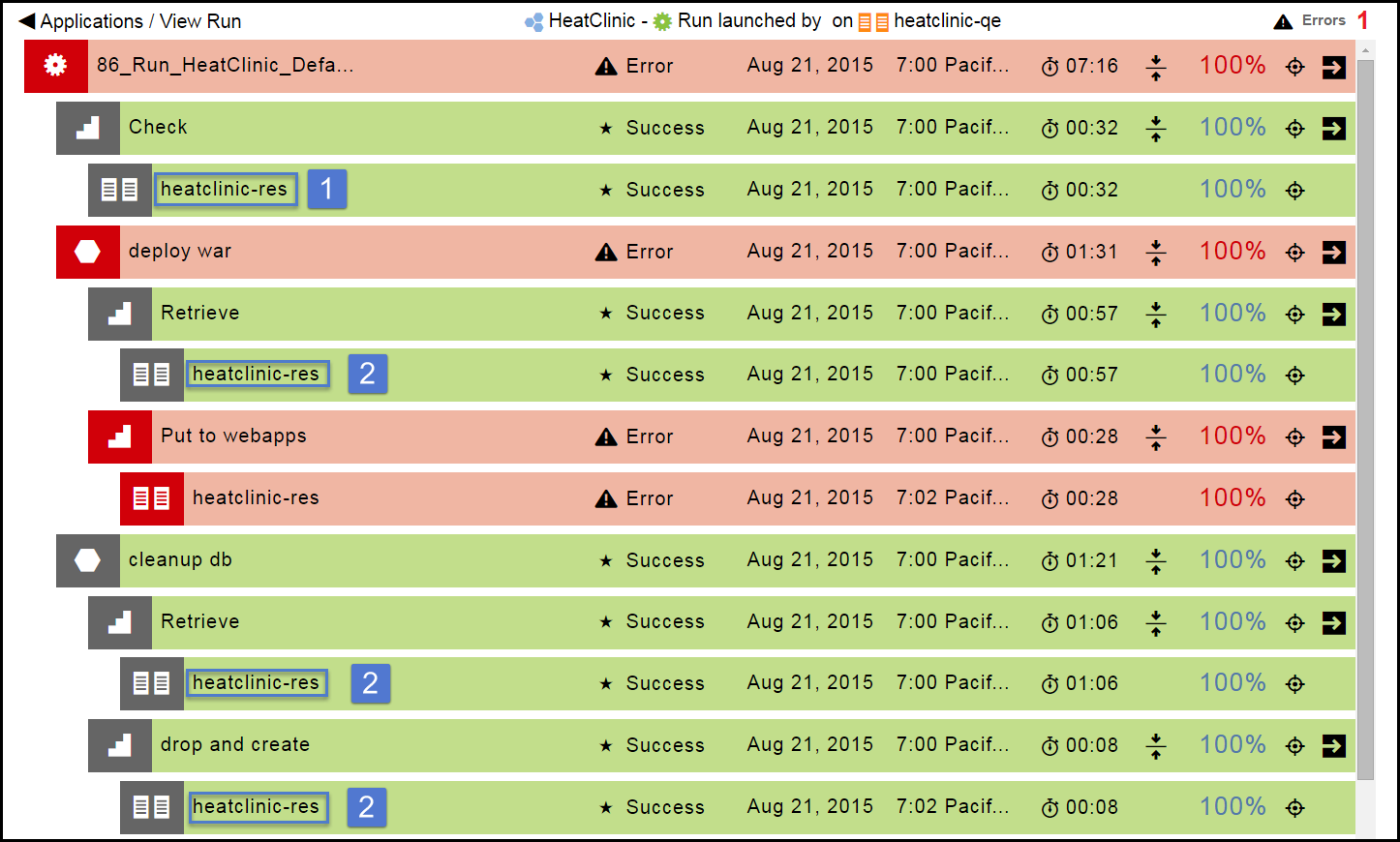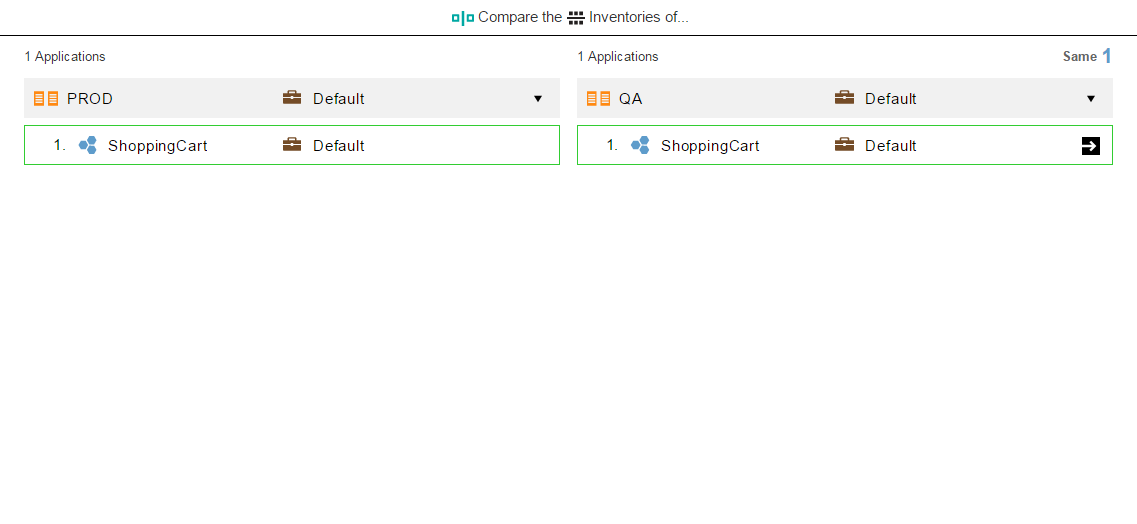The Environment Inventory is the state of the environment at a point in time.
-
When an application is running, you can see its progress as it runs.
-
After an application runs, you can see the details for the objects in application.
Viewing an Environment Inventory
This example shows the Environment Inventory for the heatclinic-qe environment to which the HeatClinic application is deployed. The application has two application processes called Run and Stop.
In the Environments List, choose an environment and click the Inventory button to open the Environment Inventory.
Clicking in the row for an object in the Environment Inventory displays more details about that object, such as:
-
Environment name
-
Application mapped to this environment
-
Number of deployed artifacts in the application
-
When the artifacts were deployed
-
Status of the deployment: success or failure
-
Go to the
heatclinic-qerow, and select to open the Environment Inventory.
to open the Environment Inventory. -
Expand the row to view the list of components in the Run process of the HeatClinic application.

-
Click the Process button in any of the component rows to view the Run application process runs in the heatclinic-qe environment.
The results of running the Run application process, application process steps, and component process steps now appear in the inventory. An application process step can be based on a component (defined by component processes), a plugin, a command, or a procedure.
The Run application process consists of four process steps: Check, deploy war, cleanup db, and start server.
-
The Check step is defined by a command.
-
The remaining steps are defined by components in the HeatClinic application.

Object 1
Application process
2
Application process step defined by a command
3
Application process step defined by a component
4
Component process step
-
-
To open the Job Details page for an application process, an application process step, or component process step, do one of the following:
-
Click the object name to open the Job Details page for that object.
-
Click the View details button at the end of the row.
-
-
For a process step, select
 to view the results of deploying process steps.
to view the results of deploying process steps.
Object 1
Click here to view the results of running the application process step in the Job Details page.
2
Click here to view the results of running the component process step in the Job Details page.
-
Comparing Environment Inventories
This feature lets you directly compare inventories of two environments (such as a pre-production environment to a production environment). When you conduct troubleshooting or auditing, this feature lets you easily determine the drift (how one environment’s inventory differs from another). This feature eliminates the need to create custom reports or go to one environment’s inventory, note all the artifact versions, then go to another environment’s inventory and visually compare.
For example, if your pre-production environment is working but your production environment is not, you can determine the drift and quickly make the production environment match the pre-production environment.
To compare two environment inventories, complete the following steps.
-
Open the Environments List.
The applications column of the Environments screen shows the number of applications that is installed or deployed onto each environment.
-
Click to highlight two environments as follows:
-
Click the Compare button.
The Compare the Inventories of… screen appears. The screen displays the inventories of both environments side by side.
The screen displays the number of applications with the same name across both inventories as well as the number of applications in each inventory.
-
Click the environment selection menu
 in either column to select an environment for comparison.
in either column to select an environment for comparison.The following screen shows two different environments that contain the same application:

Note that if two instances of an application of the same name appear in both environments, the Details button
 appears, which lets you drill down into the applications to compare them.
appears, which lets you drill down into the applications to compare them. -
Select Details
 . The Component comparison screen appears.
. The Component comparison screen appears.You can select the expand
 button to expand the row and see the details.
button to expand the row and see the details. -
Click the App Process button. The App Process comparison screen appears.
This screen shows the last date of deployment for the applications.